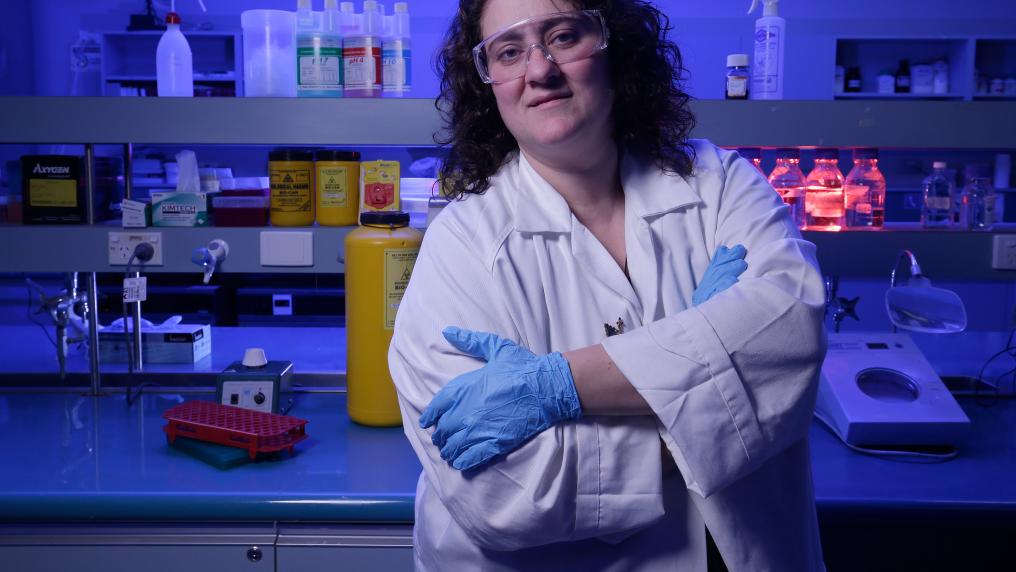VU research featured in Stories of Australian Science

Two of Victoria University's research projects are featured in the latest edition of Stories of Australian Science 2017.
Professor Vasso Apostolopoulos, of VU’s Centre for Chronic Disease Prevention and Management, has published research into switching off T-cells as a therapy for multiple sclerosis (MS).
Professor Jason Allen and his PhD student Mary Woessner of VU’s Institute of Sport, Exercise and Active Living (ISEAL) have published work on the effects of beetroot juice on bad leg circulation and chronic heart failure.
Turning off toxic T-cells in MS
Dr Vasso Apostolopoulos is working with researchers in Patras, Greece on her MS project. The work involves bringing together peptides, or protein fragments, with a biochemical delivery system — a system that has already been shown to be effective in cancer-vaccine clinical trials.
MS affects more than 23,000 Australians and two million people worldwide. In it, the body’s immune system T-cells attack myelin, the fatty sheath that protects the central nervous system and helps nerve impulse transmission.
“We don’t want to get rid of T-cells,” she says. “We want to switch them off so they no longer secrete the toxic granules that break down myelin or the cytokines — chemical messengers — that recruit other destructive cells to the site.”
Read more in Turning off toxic T-cells in MS clinical trial
Juice for your heart
Professor Jason Allen and his PhD student Mary Woessner found that drinking a glass of beetroot juice a few hours before a workout can improve exercise performance and relieve pain in those suffering from peripheral arterial disease (PAD), or bad leg circulation.
This means the juice could be a handy treatment for atherosclerosis-related conditions, in which fatty material or plaque builds up on the inner walls of blood vessels, decreasing blood flow in the body.
The high levels of organic nitrates in the juice help the body produce nitric oxide, a gas that helps blood vessels dilate, thereby increasing blood flow.
“Exercise is an effective long-term therapy for several cardiovascular diseases, but for some people, the ability to increase the supply of blood and oxygen to working muscles can be limited,” Dr Allen said.
Mary is looking at the same problem for her PhD, but among people who suffer from chronic heart failure, where the heart can’t pump enough blood and oxygen to meet the body’s needs. Subsequent research will try to clarify the mechanisms at work, and when treatment would be most effective.
Read more inThe right juice for your heart



